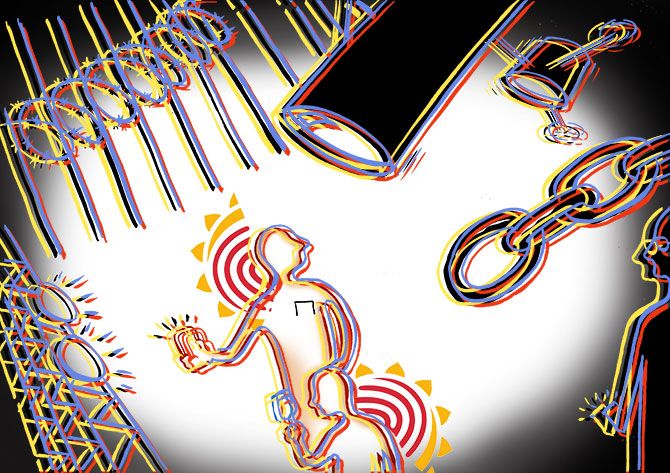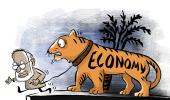As a well-wisher of the Indian Statistical System and part of the system for more than 37 years, Sunil K Sinha, former DG and CEO, NSSO, offers suggestions to improve data quality.

The controversy surrounding the release of the National Sample Survey Office report on the status of unemployment in India and recent leak of the NSO (earlier NSSO) report on household consumption have seriously eroded the credibility of the Indian Statistical System.
A look into the working of the NSSO is needed at this moment.
The Indian Statistical System was developed to capture a wide variety of data on our very large and decentralised economy.
Despite the system's impressive achievements, there has been growing concerns regarding the quality of data.
To address problems of data collection, tabulation and interpretation the Indian Statistical Service (ISS) took shape in 1961.
Subsequently in line with the recommendations of the C Rangarajan Commission the present National Statistical Commission (NSC) came into existence on July 12, 2006.
The National Sample Survey Office has been tasked to undertake large scale household and enterprise surveys on various aspects of the economy.
The NSS was established in 1950 by the government on the advice of Professor P C Mahalanobis, then statistical adviser to the Cabinet, with the support of Jawaharlal Nehru.
The National Income Committee had found large gaps in statistical data for computation of national income aggregates.
The main objective of the NSS was to fill these data gaps.
In April 1961 the Department of Statistics was set up and the NSS became a part of it.
In October 1999, the NSSO became an attached office in the ministry of statistics and programme implementation (MoSPI).
The National Sample Survey inaugurated its survey operations with a multi-subject enquiry conducted in the rural areas only from October 1950 to March 1951.
By the 10th round, the NSS was firmly established.
The Indian Statistical Institute, too, got a statutory status, with the passing of the ISI Act in Parliament (1959).
An evidence of its general recognition was the interest shown by government organisations and autonomous bodies in using the NSS survey apparatus for collecting data needed by them.
As per an administrative order of the MoSPI in May 2019, the NSSO along with CSO has now been renamed NSO with no change in the status of the four divisions of the NSSO.
The little autonomy which the NSSO enjoyed to produce analytical reports seems to have been eroded.
No doubt there are working groups and technical committees and the National Statistical Commission, but their present roles remain purely technical.
Some of the recent NSS reports were leaked to the print media before release leading to many accusations.
This year the NSS will be 70 years old.
As a well-wisher of the Indian Statistical System and part of the system for more than 37 years here are some suggestions to improve data quality.
- The government of the day should consider data collection as its priority area and avoid short term contractual appointments. Sufficient increase in regular data collection staff will increase employment opportunities. For more autonomy, NSSO should be placed under National Statistical Commission with more legal teeth to the NSC;
- Data collectors should be part of the present Subordinate Statistical Service;
- The Subordinate Statistical Service should be renamed Supporting Statistical Service (SSS);
- The present cadre strength of SSS should include data collectors;
- The strength of data collectors could be determined on the basis of the sample size of surveys to be undertaken by the NSS as approved by the NSC. They should be posted to the states to which they belong and know the local language;
- Since the NSS has been providing estimates of parameters in terms of rates, ratios and percentages, the present sample size of recent NSS surveys is adequate to provide reliable estimates of basic parameters;
- The NSS should now adopt the panel sample approach as is being done for the SRS of the RGI. Such a change in the sample design may need further technical discussions;
- There is need for more stress on research for the SDRD of the NSO. So far they are primarily engaged in designing of survey schedule, tabulation plans, instruction manuals for field staff, training and preparation of analytical reports based on data collected by the FOD and cleaned and tabulated by the DPD. They should take up more analytical studies based on unit level data;
- FOD of NSO should intensify field staff training, supervision and random checks of filled-in schedules, analysis of tour diary of supervisors.











